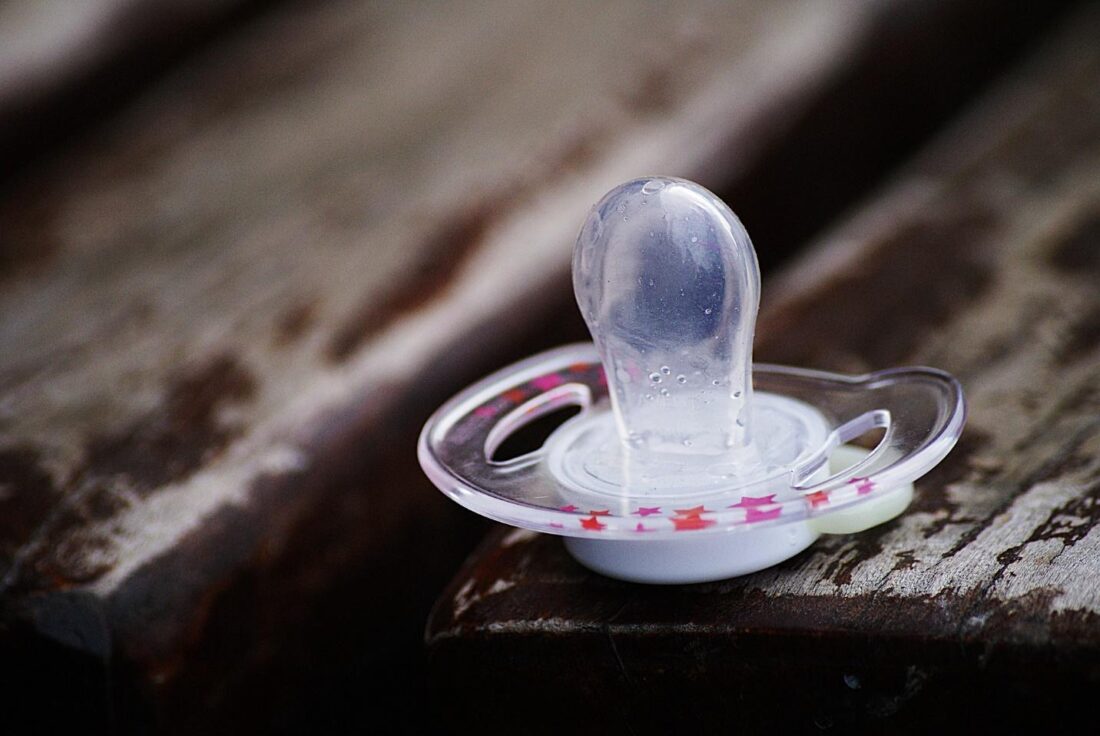
Image by Franco A Guaraldo from Pixabay.
Using pacifiers on babies is a common practice among parents and caregivers worldwide. Pacifiers can offer a soothing effect on infants and are often effective in reducing crying and promoting sleep. However, the use of pacifiers is a topic of debate among healthcare professionals and parents due to the potential risks associated with their use. For any dental concerns related to pacifier use or your child’s oral health in general, you can find a qualified dentist in your area by searching phrases like “dentist near me lafayette la”. This will provide you with a list of nearby dental practices to choose from.
Nipple Confusion
One of the potential risks of using pacifiers is nipple confusion, which interferes with a baby’s ability to breastfeed effectively. This occurs when the baby is introduced to a pacifier in addition to breastfeeding. The baby may become accustomed to the pacifier’s shape and suction, making it difficult for them to latch onto the breast correctly.
Dental Problems
According to a post by The Bragging Mommy, prolonged use of pacifiers can cause dental problems in babies. The pressure exerted by the pacifier on the roof of the mouth and the teeth might cause the teeth to shift or become misaligned, resulting in malocclusion or bite problems. The longer a baby uses a pacifier, the higher the risk of dental problems.
Ear Infections
to several studies, infants who use pacifiers are more likely to get ear infections. Pacifiers can trigger fluid accumulation in the middle ear, providing a haven for bacteria. This leads to painful ear infections that require medical attention. According
Speech Development
Overusing pacifiers interferes with a baby’s speech development by preventing them from practicing mouth movements necessary for speech. Babies must move their mouths, lips, and tongue to make sounds and words. Prolonged use of pacifiers limits these movements, leading to delayed speech development.
Dependency
Some babies become dependent on pacifiers and have difficulty self-soothing without them. This leads to sleep disruptions and increased fussiness when the pacifier is unavailable. Overreliance on pacifiers also interferes with a baby’s ability to develop other self-soothing skills.
What Healthy Alternatives Are There?
Once you’ve decided when and how to wean your baby off the pacifier, it’s a good idea to think about other ways to calm them. This may help your infant adjust to the change more easily.
Breastfeeding is a good option because sucking is a calming and healing experience for babies. Alternatively, you can use bottle-feeding with healthy organic formulas, like the ones from Baby’s Best Food, to achieve the same results as breastfeeding.
“Breastfeeding and bottle-feeding provide even better comfort compared to pacifiers,” says a lactation consultant from Babysbestfood. “Some parents consider pacifiers because it is the easy way out, forgetting options like breastfeeding and bottle-feeding enhance bonding.”
Additionally, you can soothe your infant using methods like rocking, swinging, white noise, and swaddling. Experts advise parents to use such methods to reduce dependency on pacifiers and to avoid the risks that come with their use.
Identifying and applying effective pacifier substitutes for your child will help with weaning and almost certainly result in a positive result. They rely heavily on you as a compassionate parent and caregiver, particularly during transitions. The key component to success during the weaning process is maintaining consistency, composure, and sensitivity to your child’s demands.



